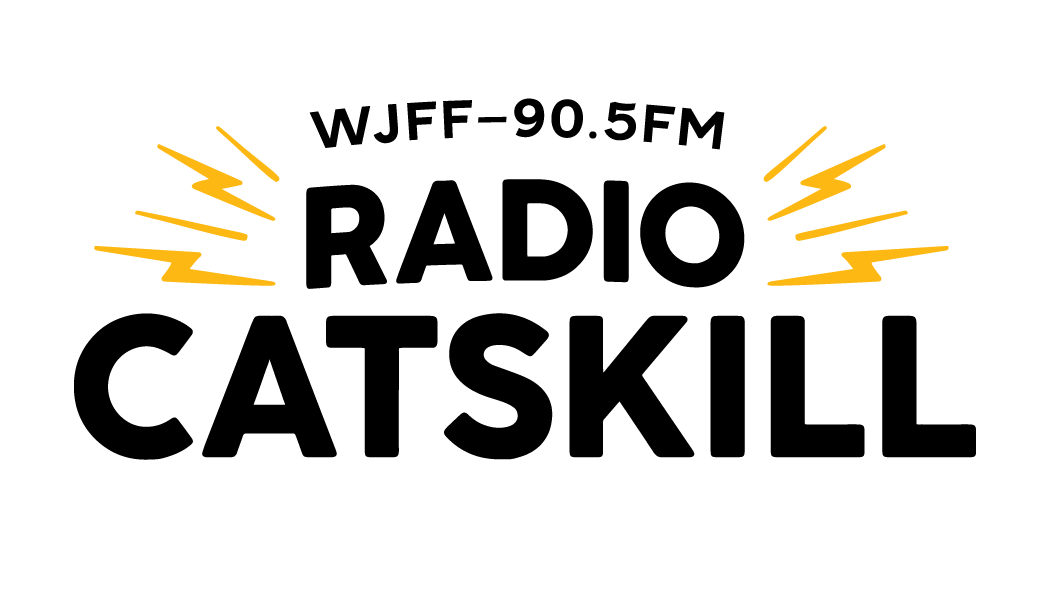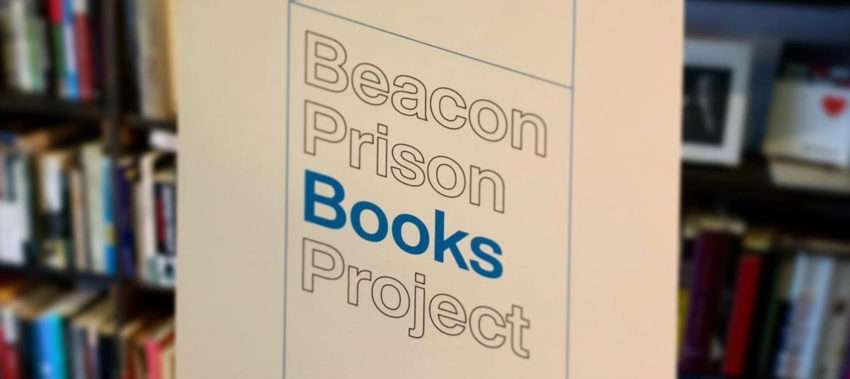If you walk into a local bookstore in Ulster and Dutchess counties, you might encounter a shelf lined with an unusual set of books — book requests by individuals currently incarcerated in New York that you can help sponsor and send. These shelves are an effort by the Prison Books Project, a volunteer-run nonprofit that has been working since 2020 to send books to incarcerated individuals throughout New York State at their request and for no cost. Founded in Binnacle Books in Beacon, the project has now expanded to six other bookstore locations spread throughout the two counties, such as Rough Draft Bar & Books in Kingston and Blue Heron Books in High Falls.
Ironically, Annmarie Nye the initial inspiration for the Prison Books Project came out of its very premise — books. Nye is a co-founder of the Prison Books Project and had been working for Binnacle Books and volunteering for the Beacon Prison Rides Project, another local organization that provides free rides for families of incarcerated individuals to Beacon’s prisons, during the time the nonprofit came into being.
“There was an event that Binnacle had that was for a book called ‘Prison Land’ by Brett Story,” Nye described. “And part of what she discusses in the book is that prisons aren’t simply a building. They’re not just an edifice, but they’re also a set of relationships. So Mark Trecka, who is one of the other founders and kind of the original lead organizer of this project, and Laurie Dick, who was the founder […] of the Beacon Prison Rides Project at the time had a very late night conversation where they were talking about what is the role of a bookstore in that set of relationships in the community, and what can we do to be a positive force [in] that sort of web of relationships?”
This understanding of bookstores being in active relationship with prisons became important as one of the first correctional facilities that the nonprofit started sending books to, Fishkill Correctional Facility, stands in close proximity to Beacon itself, explained Michal Mart, who is the current co-leader of the nonprofit. Mart, who started organizing for criminal justice reform after moving to Beacon in 2011 and witnessing the scale of the prison industry in upstate New York, described the prison as being only two minutes away from her daughter’s high school.
“And there are over 1700 people incarcerated in Fishkill at any given time, which, if you look at the population of Beacon, makes up a significant percentage of the people who actually live in the city,” Nye added. “So if you shift your thinking from people who are incarcerated, are going away to some place, to thinking those people have been relocated into our community, uh, that changes the relationship that we have to people who are incarcerated in our local area.
How the Prison Books Project works has not changed since it was established five years ago. Incarcerated individuals can send their book requests and/or ask for book recommendations to the non-profit’s PO Box in the Beacon Post Office, and then from there, the books are ordered and put on the shelves of participating bookstores, where customers can sponsor a book and write a personal note before it’s shipped to a facility. But after an initially slow start to the project, what has come to change is the volume of requests they’re receiving, with the nonprofit now facing a backlog in requests.
“We’re getting I would say about 120 letters a month off the top of my head because I have been checking the mailbox recently. You have to remember that each request might contain several book requests,” […] So we might be having 500 requests a month from 120 letters,” Mart said. “We are really excited because we are about to reach a milestone of sending 7,000 books to almost 2000 people. [Alongside state prisons], we also send to county jails, ICE facilities and to federal prisons that are located in New York State. So we’ve basically touched the lives of almost 2000 people at this point.”
Rough Draft in particular started partnering with the nonprofit in July 2023, and since they built their book display for the Prison Books Project two years ago, the bookstore has sent over 920 books, with about 20-30 book requests coming in per week, according to their bookseller Brett Jones in an interview with Radio Catskill. For Worlds’ End Comics down the street from Rough Draft, co-owner Cristopher Livecchi said they’ve been able to send just shy of 400 books since they joined in 2023, and the requests range from manga and fantasy novels to books about real estate investment or becoming an electrician.
Referring to the non-profit as a “mutual aid project,” Nye explained that it was intentional for them to situate the project at the community level. Working among local bookstores and making community members the sponsors, Nye said, is about fostering a genuine connection between those within and outside these prisons — ultimately curbing the logic of dehumanization and disappearance that underlies the prison system. In addition, bookstores helped fill in that hole left by loved ones of incarcerated individuals facing significant restrictions in terms of what they could send inside prisons.
“One of the things that we think is actually quite unusual about this particular project and particularly community-focused is that each person who comes into a bookstore and sees the project for the first time, that person is making a one-to-one connection with someone who is incarcerated,” Nye said. “It doesn’t require a huge commitment of the person who is sponsoring the book, [but] it is a significant step in terms of shifting the relationships that we were talking about earlier. So the fact that someone can walk into a local bookstore and suddenly then walk out with a relationship to someone who’s incarcerated in New York State is a pretty serious transformation, and I think it’s part of the reason that the project has been successful and why it has worked. In addition to fulfilling its fundamental aim is also the way that it creates connections between people and that wouldn’t be possible if it wasn’t a book that was sitting on a shelf in a local bookstore.”
And Mart said the specific focus on sending a book, while ultimately being a miniscule act, has been able to have an impact.
“I think one thing that’s really nice about sending a book like a physical object is that it’s a gift,” Mart said. “It’s a gift, and it’s a gift to that person to do with as they wish. They often share it with friends or give it to someone else. But I’ve read multiple letters where they just describe that moment of being called into the mail room and hearing that there is something coming for them, and they don’t know exactly from who and from where. And just the delight and the surprise of receiving something from someone and from a group and knowing that someone cares about you. I think that’s really meaningful. Not everyone, but some of the people that write to us don’t have many connections left and maybe none even. So having a connection with our group and often with the individual sponsor who walks into the bookstore, picks up a book and also writes a note, it can be very, very meaningful.”
Mart explained their work has become more important as incarcerated individuals currently deal with the reverberating impacts of the correctional officers’ strike earlier this year that has led to significant staffing shortages within state prisons and worsened conditions for incarcerated folks. The strike, which spanned 42 prisons throughout New York State, had come after the murder of Robert Brooks by prison guards in Marcy Correctional Facility in Marcy, NY, and began in protest of staffing shortages and the HALT Act, which was passed to limit the use of solitary confinement within prisons.
“During that time, there were so many avenues for connection and activities within the prison themselves that were closed off to people,” Mart explained. “They didn’t go out of their cells to eat, they didn’t go to recreation, they didn’t have religious activities. The visitation was closed for a really long time and is still not back to normal levels. There is only one weekday visitation now, and very few facilities are back to letting people have the conjugal visits. So at this point, it feels like this connection of simply getting a book from a human outside and knowing that the outside world hasn’t forgotten about you is extremely important.”
Nye said the non-profit continues to look toward the future in terms of increasing their scale in order to be able to fulfill the hundreds of requests they’ve been receiving and internally restructuring the Project to be reflective of the very population they’re aiming to serve.
“A long-term goal for this project for many years has been eventually to hand this project off to formerly incarcerated people, both in terms of running the nonprofit as a board and in terms of once the project gets to an appropriate size, having someone who is the director and an employee of the project,” Nye said. “And, of course, I do think that it is inevitable that as the number of requests we are getting increases, if additional bookstores approach us and it seems like they would be a good fit to add to the project, we will do that. But it is something that has to be slow, and as Michal said earlier, at a human scale. Since we are just a small group of volunteers who are doing this, it has to happen at a pace that is sustainable.”
Image: Postcard for the Prison Books Project (Photo credit: @prisonbooksproject on Instagram)

